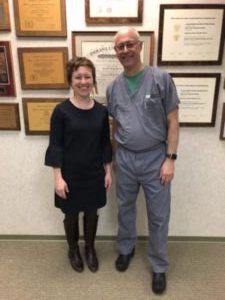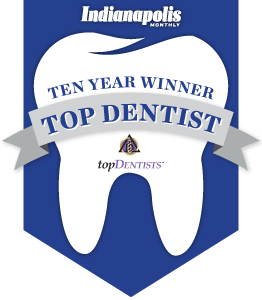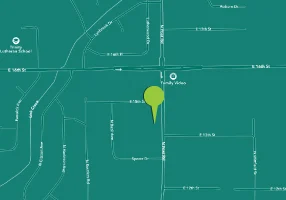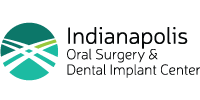Wisdom Teeth Removal Procedure
Wisdom Teeth Evaluation And Removal Indianapolis
Experiencing tooth pain? Call Our Indianapolis Office for a Wisdom Teeth Extraction (317) 790-2555
At Indianapolis Oral Surgery & Dental Implant Center, Dr. Lawrence Falender will thoroughly evaluate the condition of your wisdom teeth and determine the need for their removal. Indianapolis Oral Surgery is equipped with state of the art equipment including a panoramic unit and a CT scan (I-Cat unit) for selected cases where required.
As is the case with each patient, Dr. Falender will listen carefully to your complaints, questions and concerns, examine you fully, and customize your treatment plan. He will determine if in fact your wisdom teeth need to be removed or if retention of the teeth is more appropriate.
A highly sought after oral surgeon, Dr. Falender is renowned for providing among the safest and most comfortable wisdom teeth removal Indianapolis has to offer.
As the wisdom teeth are the last four teeth to form in the mouth, they often present a problem when there is inadequate space for them to grow in properly. In these cases, they may become trapped in the jawbone or grow in at a troublesome angle, causing a host of complications.
The longer wisdom teeth are allowed to grow in the mouth, the greater the chance of complications – including infection, pain and damage to the surrounding teeth. In addition, impacted wisdom teeth that are trapped in the jawbone may cause decay and gum disease if left untreated for a prolonged period of time. For these reasons, Dr. Falender advises his patients to seek early wisdom teeth removal to reduce their risk and ensure a swift recovery.
Although it is a very common procedure, wisdom teeth removal is still a significant surgery. As such, it requires the skill of a leading oral and maxillofacial surgeon with experience safely resolving complex wisdom teeth cases. With years of experience and countless successful procedures, Dr. Falender is widely recognized for delivering among the best wisdom teeth removal Indianapolis has to offer. You are always more than welcome to call him and ask any questions you may have about the procedure.
How You Prepare For Wisdom Teeth Removal Surgery?
Your dentist may perform the procedure in the office. However, if your tooth is deeply impacted or if the extraction requires an in-depth surgical approach, your dentist may suggest you see an oral surgeon. In addition to making the area numb with local anesthetic, your surgeon may suggest sedation to allow you to be more comfortable during the procedure.
Questions you may want to ask your dentist or oral surgeon include:
- How many wisdom teeth need to be removed?
- What type of anesthesia will I receive?
- How complicated do you expect the procedure to be?
- How long is the procedure likely to last?
- Have the impacted wisdom teeth caused damage to other teeth?
- Is there a risk that I might have nerve damage?
- What other dental treatments might I need at a later date?
- How long does it take to completely heal and return to normal activity?
Preparing for Surgery
A wisdom tooth extraction is almost always performed as an outpatient procedure. This means that you go home the same day.
You’ll receive instructions from our Indianapolis Oral Surgery staff on what to do before the surgery and the day of your scheduled surgery. Ask these questions:
- Will I need to make arrangements for someone to drive me home after the procedure?
- When do I need to arrive at the dental office?
- Do I need to avoid eating food or drinking fluids or both (fast)? If so, when do I begin?
- Can I take my prescription medications before the surgery? If so, how soon before the surgery can I take a dose?
- Should I avoid any nonprescription drugs before the surgery?
An Overview of Wisdom Teeth Removal Procedure
Guided by his extensive training and exceptional technical skill, Dr. Falender in Indianapolis has provided countless patients with safe, effective and comfortable wisdom teeth removal.
Pre-Surgery Consultation Appointment
At the initial visit, Dr. Falender will carefully listen to your concerns. He will compile a complete medical and dental history followed by a thorough physical oral and head and neck examination inclusive of the TMJ. This will be followed by detailed radiographic evaluation which is comprised of a panoramic radiograph and occasionally a 3-D image or I-Cat CT scan when required and as determined by the needs of the patient.
Once all of the information has been compiled and reviewed, Dr. Falender will explain the nature of your situation, review all associated risks and benefits and recommend the appropriate treatment specifically for you. All of your questions will be answered carefully and to your satisfaction in an unhurried manner.
An appropriate surgical date and time will then be arranged to accommodate your schedule. If required and desired, surgery may be possible on the same day.
The Wisdom Teeth Removal Procedure
On the day of surgery, your treatment will be reviewed again together with you, and all of your questions will be answered. Informed consent will be reviewed and signed and treatment will be completed in an unhurried, uninterrupted, comfortable and calm setting.
Anesthesia and Wisdom Teeth Removal
Depending on the expected complexity of the surgery, Dr. Falender will use one of the following anesthesia options to ensure a painless procedure:
Local Anesthesia
After numbing the gums, Dr. Falender will inject local anesthesia near the site of the extractions. Although the patient will be awake during the procedure, they will not feel any pain.
Sedation Anesthesia
In many cases, Dr. Falender will administer intravenous sedation anesthesia in conjunction with local anesthesia. This approach ensures the patient doesn’t experience any pain and results in a very limited memory of the procedure.
General Anesthesia
In very rare and complex cases, Dr. Falender may administer general anesthesia, causing the patient to temporarily lose consciousness. With this approach, the patient will have no memory of the extractions after the surgery.
Once the anesthesia has been administered, Dr. Falender will begin the procedure by
- Makes an incision in the gum tissue to expose the tooth and bone
- Removes bone that blocks access to the tooth root
- Divides the tooth into sections if it’s easier to remove in pieces
- Removes the tooth
- Cleans the site of the removed tooth of any debris from the tooth or bone
- Stitches the wound closed to promote healing, though this isn’t always necessary
- Places gauze over the extraction site to control bleeding and to help a blood clot form
When done, you will remain in the office for a short time for observation and you will then be able to go home. If required, a car will be called on your behalf and you will be escorted to the car as required. A follow up will be pre-arranged for the week(s) following your surgery.
What Patients Are Saying About Our Indianapolis Oral Surgeon
For your convenience, we have provided some videos of former patients talking about their procedures at Indianapolis Oral Surgery & Dental Implant Center.
An Overview Of Wisdom Teeth Recovery
Recovery after wisdom teeth removal varies and is largely dependent on the complexity of the procedure. However, provided the patient adheres to Dr. Falender’s post-operative guidelines, most recovery periods will only last a few days.
- On the first day after surgery, you may experience some minor bleeding and pain. You should cover your pillowcase with something so that you don’t get any blood on it. Each individual’s reaction to surgery varies, and the sensation of pain can range from mild discomfort to severe pain.
- A variable amount of swelling can be expected following the surgery. This swelling usually peaks on the second day and should begin resolving on the third day. You can limit the amount of swelling you will have by using ice for the entire first day. The more ice you use the first day, the less swelling you are likely to have on the second day. Please remember to put ice on the first day even if it is somewhat uncomfortable to have the cold next to your skin.
- On the third day, you will notice that your jaw muscles are stiff, and it is difficult to open your mouth normally. You can apply moist heat to your face on the second and third day allowing your muscles to relax more and open wider.
- Most of the time you will want to limit your activities for a few days. We ask that you follow your post-operative instructions closely. Doing so will make you as comfortable as possible during the first few days following your procedure.
- Please allow time for your body to begin healing before resuming an active social, academic, or athletic schedule. Most patients feel like they are over the hump and on their way to recovery in 3 to 5 days.
Immediately following the procedure, some temporary pain and swelling is to be expected and will be proportional to the surgery involved.
For example, a simple wisdom tooth extraction will yield less pain and swelling than the complex removal of impacted wisdom teeth. Committed to your safety and comfort, Dr. Falender will prescribe medication to help you manage the pain, and instruct you to ice the area to reduce swelling. To ensure proper healing, you will be advised to avoid rinsing the mouth vigorously, using straws, drinking alcohol and brushing the teeth next to the extraction site during the initial recovery period.
In addition to these general guidelines, Dr. Falender in Indianapolis will advise on your individualized post-operative care during your initial consultation.
If you receive sedation anesthesia or general anesthesia, you’re taken to a recovery room after the procedure. If you have local anesthesia, your brief recovery time is likely in the dental chair.
As you heal from your surgery, follow your dentist’s instructions on:
Bleeding
Some oozing of blood may occur the first day after wisdom tooth removal. Try to avoid excessive spitting so that you don't dislodge the blood clot from the socket. Replace gauze over the extraction site as directed by your dentist or oral surgeon.
Pain Management
You may be able to manage pain with an over-the-counter pain reliever, such as acetaminophen (Tylenol, others), or a prescription pain medication from your dentist or oral surgeon. Prescription pain medication may be especially helpful if bone has been removed during the procedure. Holding a cold pack against your jaw also may relieve pain.
Swelling and Bruising
Use an ice pack as directed by your dentist or surgeon. Any swelling of your cheeks usually improves in two or three days. Bruising may take several more days to resolve.
Activity
After your surgery, plan to rest for the remainder of the day. Resume normal activities the next day, but for at least a week, avoid strenuous activity that might result in losing the blood clot from the socket.
Beverages
Drink lots of water after the surgery. Don't drink alcoholic, caffeinated, carbonated or hot beverages in the first 24 hours. Don't drink with a straw for at least a week because the sucking action can dislodge the blood clot from the socket.
Food
Eat only soft foods, such as yogurt or applesauce, for the first 24 hours. Start eating semisoft foods when you can tolerate them. Avoid hard, chewy, hot or spicy foods that might get stuck in the socket or irritate the wound.
Cleaning Your Mouth
Don't brush your teeth, rinse your mouth, spit or use mouthwash during the first 24 hours after surgery. Typically, you'll be told to resume brushing your teeth after the first 24 hours. Be particularly gentle near the surgical wound when brushing and gently rinse your mouth with warm salt water every two hours and after meals for a week.
Tobacco Use
If you smoke, don't do so for at least 72 hours after surgery — and wait longer than that if possible. If you chew tobacco, don't use it for at least a week. Using tobacco products after oral surgery can delay healing and increase the risk of complications.
Stitches
You may have stitches that dissolve within a few weeks or no stitches at all. If your stitches need to be removed, schedule an appointment to have them taken out.
When to Call Your Indianapolis Surgeon
Call your Indianapolis oral surgeon if you experience any of the following signs or symptoms, which could indicate an infection, nerve damage or other serious complication:
- Difficulty swallowing or breathing
- Excessive bleeding
- Fever
- Severe pain not relieved by prescribed pain medications
- Swelling that worsens after two or three days
- A bad taste in your mouth not removed with saltwater rinsing
- Pus in or oozing from the socket
- Persistent numbness or loss of feeling
- Blood or pus in nasal discharge
Are There Any Problems?
As with any medical procedure, there can be complications or an unanticipated result. Some complications that patients undergoing Wisdom Tooth Extraction may experience include: Damage to the sensory nerve that supplies sensation to the lips and tongue, sinus communication, infections and dry sockets.
After the procedure, our assistants will review your post-operative instructions with your escort. We ask that you follow these instructions closely, as they will make you most comfortable following your procedure. If you were sedated, you will be comfortable and drowsy when you leave the office. Most patients prefer to go home and rest with no other physical or scholastic activities planned for a few days. With any medical procedure, there can be unexpected results. These can include delayed healing, infection and post-operative numbness or tingling in your lip, chin, or tongue. The oral surgeon will review relevant post-operative events with you and answer any questions during your office visit.
Damage to Sensory Nerve
A primary concern is a nerve within the lower jawbone that supplies feeling to the lower lip, chin, and tongue. This nerve is frequently very close to the roots of the lower wisdom teeth. Having these teeth out between the ages of 12 and 18 usually provides shorter roots so that the nerve is not so close to the roots of these teeth. Occasionally, when the teeth are removed, and especially in older patients, the nerve can become injured. When local anesthesia wears off, you may experience a tingling or numbing sensation in the lower lip, chin, or tongue. Should this occur, it is usually temporary and will resolve gradually over a period of weeks or months. On rare occasions it can result in a permanent alteration of sensation similar to having local anesthesia. We feel that you should be aware of this possibility before consenting to surgery.
Sinus Communication
The upper wisdom teeth are situated close to your sinuses, and their removal can result in an opening between your mouth and the sinus. Once again, if the teeth are removed at an early age, the root formation is minimal, and this complication is very unlikely. However, if it does occur, it will usually close spontaneously, but we may give you special instructions to follow, such as avoid blowing your nose for two or three days following the surgery. You can wipe your nose, but don’t blow your nose. If you have to sneeze, you should sneeze with an open mouth into a tissue. Pressure should not be created in the sinus area, which may dislodge the healing blood clot. If you sense this condition occurring after the surgery, please contact the office. An additional procedure may RARELY be necessary to close the opening.
Dry Sockets
Dry sockets continue to be the most common problem people experience following dental surgery. They arise due to premature loss of a blood clot in the empty tooth socket. This seems to occur with greater frequency in people who smoke or are taking birth control pills. While both jaws can be affected, they usually occur in the lower jaw on the third to fifth day. They cause a deep, dull, continuous aching on the affected side(s). Patients may first notice the pain starting in the ear radiating down towards the chin.
The symptoms frequently begin in the middle of the night, and your pain medication regimen may not help. Treatment can involve changing your prescription. Occasionally it is helpful to place a medicated dressing in the empty tooth socket. This will help decrease the pain and protect the socket from food particles. The effectiveness in alleviating the pain lasts for 24-48 hours and may require dressing changes every day or two, for five to seven days. Dressings usually are removed when you have been pain free for 2 to 3 days.
The dressing doesn’t aid in healing. The only reason to place a dressing is for pain control. If medication is controlling the pain, the socket will heal without a dressing. Following removal of the dressing, an irrigation device may be provided to help you to keep food particles from lodging in the extraction site.
Infection
Occasionally, post-operative infections occur. This usually requires an office visit and clinical examination. Many times, just placing you on an antibiotic for one week will take care of the infection. If it persists, the area will have to be drained and cleaned. Other temporary problems you may experience in the post-operative period include stiffness of the jaws, chafing around the corners of your lips, facial bruising, and blood oozing from the extraction sites. The post-operative instruction sheet we will provide should answer many of the questions related to these more common concerns. If not, don’t hesitate to call the office.
What Our Patient Have to Say About Us!
 I was having problems with my teeth, and I was getting ready to lose a bridge, and I just told my dentist, "I just don't like false teeth." And he suggested that I look into the implants, and he worked with Dr. Falender. It's a permanent denture; it is connected to my bones with four screws. The dentist will be able to take them out once or twice a year so that he can clean them and put them right back in there. So at no time will I have to go without teeth. For all my friends in Indianapolis, Terre Haute, Bloomington, Muncie, Indiana - anywhere that they can come - and if they need an All-on-4® procedure done, I highly recommend Dr. Falender.
I was having problems with my teeth, and I was getting ready to lose a bridge, and I just told my dentist, "I just don't like false teeth." And he suggested that I look into the implants, and he worked with Dr. Falender. It's a permanent denture; it is connected to my bones with four screws. The dentist will be able to take them out once or twice a year so that he can clean them and put them right back in there. So at no time will I have to go without teeth. For all my friends in Indianapolis, Terre Haute, Bloomington, Muncie, Indiana - anywhere that they can come - and if they need an All-on-4® procedure done, I highly recommend Dr. Falender.
 "I didn't realize how much TMJ was impacting my life because I'd lived with the symptoms for so long, but Dr. Falender and his staff were so compassionate, knowledgeable, understanding and helpful. I'm so glad I sought their help-they've made such a difference! Thanks for all you do!"
"I didn't realize how much TMJ was impacting my life because I'd lived with the symptoms for so long, but Dr. Falender and his staff were so compassionate, knowledgeable, understanding and helpful. I'm so glad I sought their help-they've made such a difference! Thanks for all you do!"
Schedule Your Consultation Today
If you are considering wisdom teeth removal, your first step will be to meet with Dr. Falender for a private consultation.
During this meeting, Dr. Falender will carefully examine your mouth to determine the position of the wisdom teeth, as well as identify any problems that may arise if they continue to grow. From there, Dr. Falender will compose a custom surgical plan to extract the teeth and prevent long-term complications.
Deeply understanding of the anxiety patients feel when undergoing an oral surgery procedure, Dr. Falender’s caring demeanor and extensive knowledge will immediately put you at ease. Celebrated for providing among the highest level of patient care, Dr. Falender is committed to your comfort throughout treatment — from the initial consultation to post-operative care.
Renowned for providing safe, effective and comfortable oral surgery, Dr. Falender has earned his reputation for delivering among the best wisdom teeth removal Indianapolis has to offer.
If your wisdom teeth are impacted and causing problems, the sooner you have them removed, the better. Delay in treatment could result in serious problems later, including damage to your other teeth.
Contact our Indianapolis dental office today to schedule an appointment. At Indianapolis Oral Surgery & Dental Implant Center in Indianapolis, you can have confidence that your treatment will be as gentle as possible, pain-free, and that you will be treated with warmth and personal care throughout the process.
Your Smile Is Waiting For You
Give your smile a second chance; you’ve earned it. With dental implants in Indianapolis, you can once again enjoy the foods you like and smile with your loved ones – with complete confidence!
Our Team Looks Forward to Welcoming You To
Indianapolis Oral Surgery & Dental Implant Center
We hope we’re your dental home for life! You can contact us by filling out the form below. Let’s discuss your goals, swap stories, and care for your smile.
AWARDS

INDIANAPOLIS
Indianapolis Oral Surgery & Dental Implant Center
1320 N. Post Rd
Indianapolis, IN 46219
Main: 317-900-4535
Hours:
Se habla Español
SOCIAL




